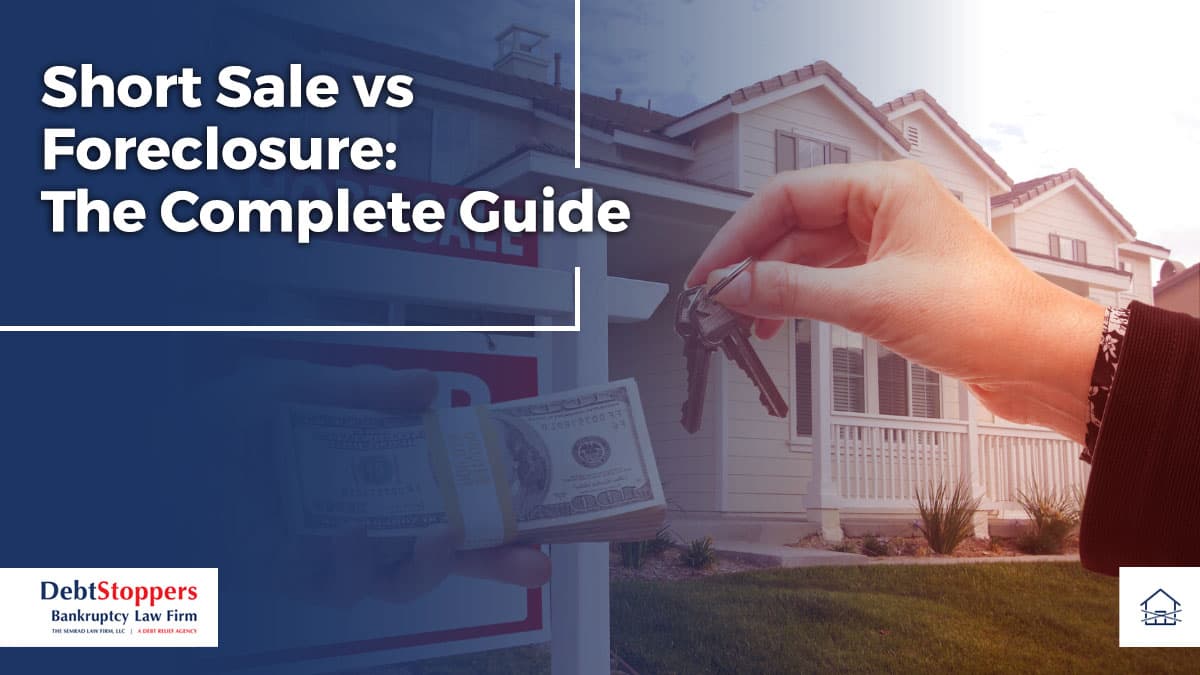Short Sale vs Foreclosure: The Complete Guide

In May of this year, the United States experienced a sharp increase in foreclosures, with 35,196 filings - a 7% increase from the previous month and a 14% year-over-year increase. This spike is primarily tied to the unclogging of distressed properties' pipeline as Covid-related moratoriums have been lifted. As real estate prices soared over the last four years, many homeowners purchased homes at the peak of their qualifying range. As prices begin to soften, many could find themselves underwater and unable to sell unless they can do so with a short sale. This scenario makes the topic of a short sale vs foreclosure extremely pertinent for homeowners.
Understanding Short Sale
When a homeowner sells the property for an amount significantly less than what is owed on the mortgage, it is called a short sale. For instance, suppose you owe $300,000 on a home, but its current market value is only $250,000. In order to sell the house, you need the bank to agree to lower its lien on the house to $250,000 minus the costs associated with the sale. There will still be a deficiency of at least $50,000 after the sale. Typically, homeowners negotiate for the bank to forgive this deficiency as part of the short sale transaction.

Foreclosure in Perspective
On the other hand, a foreclosure is the process by which the bank auctions the property and applies any proceeds first to paying off its loan. Often, the proceeds are not enough to cover the loan, and the homeowner may still owe a deficiency balance to the bank. However, if the auction price is higher than the loan balance, the surplus usually goes to the homeowner.
Short Sale vs Foreclosure: What's the Difference?
The main distinction between a short sale and foreclosure is that a short sale is voluntary, while a foreclosure is involuntary. In the short sale process, the homeowner is actively involved in selling the home and negotiating the loan's deficiency balance. On the flip side, foreclosure inflicts more severe damage to the credit report. However, it's important to remember that a short sale is also considered a default on the mortgage and will severely damage the credit report.
Causes and Duration
A foreclosure timeline can vary from state to state. In Illinois, a typical foreclosure proceeding can last up to a year, passing through the court system. However, in Georgia, foreclosures are non-judicial. Once the mortgage is past due, the mortgage company can serve notice of sale, and the process can be as short as 60 days.

Debtstoppers: Aiding in Preventing Short Sales and Foreclosures
If you've fallen behind on your mortgage but are now able to make the current payments, Debtstoppers can file a Chapter 13 on your behalf and halt the foreclosure immediately. You can then start paying the current mortgage payments while we construct a plan to repay the arrears and eliminate your other debts in an affordable manner. The arrears can be paid back over five years without any interest. We also aim to reduce your car payments and any other debts you have to give you a complete fresh start.
For multifamily homes or rentals, we may be able to reduce the mortgage to the home's value if it is underwater. If you're struggling to afford your mortgage, speak to one of our attorneys for free today. You'll be glad you did.
In conclusion, understanding the concepts of short sale vs foreclosure is crucial for homeowners facing financial distress. Making an informed decision could save you from unnecessary financial and emotional burdens. So, carefully weigh your options and seek professional help if necessary.





